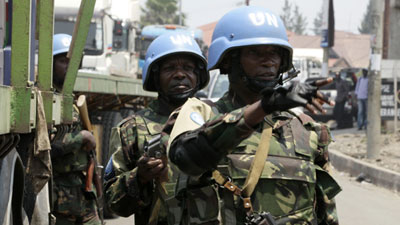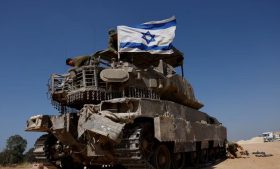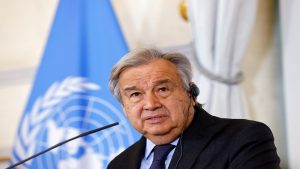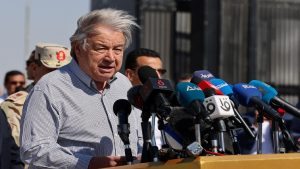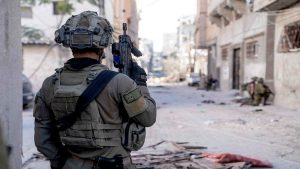Ministers from around the world have gathered in New York for the annual United Nations Peacekeeping Ministerial that examines the challenges facing blue helmets in peace missions around the globe.
The objective of the one-day event is to strengthen uniformed capabilities and the performance and protection of service personnel in the year ahead.
The conference also affords UN member states the opportunity to make pledges towards filling gaps, particularly equipment needs, identified in UN Peacekeeping missions.
A moment of silence was held to open this year’s meeting.
With 27 UN blue helmets killed in violent acts in 2018 alone – in a world were theatres of conflict have become more complex requiring peacekeeping operations to keep pace as Secretary General Antonio Guterres explained.
“In the Central African Republic and many other missions, we need helicopters that can operate 24/7 for medical and casualty evacuations from remote areas. Elsewhere, we need Armed Utility Helicopters; Intelligence, Surveillance and Reconnaissance units; Quick Reaction Forces, and Air Medical Evacuation Teams. I urge you to consider contributing these high-value and critical capabilities; and I assure you they will be utilized effectively and efficiently, in accordance with our command and control policy.”
Military personnel are deployed in 13 missions around the world, 7 in Africa including the DRC where the SANDF has battalions. But just 4% of all UN military personnel are women.
“Beyond better equipment and readiness, we must increase local engagement. Women peacekeepers and civilian staff are essential to improve those efforts. We have almost doubled the number of female staff officers and observers since the Vancouver meeting, and more women are deploying in mixed police and military units. I commend everyone involved, including the Canadian government for launching the Elsie initiative for Women in Peace Operations. But we must do more, because it is unacceptable that in 2019, only 4 percent of our military peacekeepers are women. We will present a strategy to increase the numbers of female uniformed personnel to the Security Council next month, and I urge your support,” added the UN head.
South Africa called for uniformed training and capacity building to ensure peacekeeping efforts are more effective.
Defence and Military Veterans Minister Nosiviwe Mapisa-Nqakula, “We are committed to ensure well-trained peacekeepers who are aware of the conduct and disciplined required of them in any situation, whilst providing them with relevant training and capacity building skills that will ensure their protection. There is a greater need for partnerships to be developed amongst ourselves in order to enhance capacity building and training to improve the output of peacekeepers. Thus, a common approach to training and capacity building should support efficiencies and effectiveness of our peacekeepers. In this regard we have a common understanding and perspective as SADC on the importance of triangular partnerships between the UN, AU and the region.”
After the SANDFs Major Seitebatso Pearl Block’s win at the last summit, this year’s Gender Advocate of the Year was awarded to Lieutenant Commander Marcia Braga of Brazil who serves in the UN Peacekeeping Mission in the Central African Republic.


